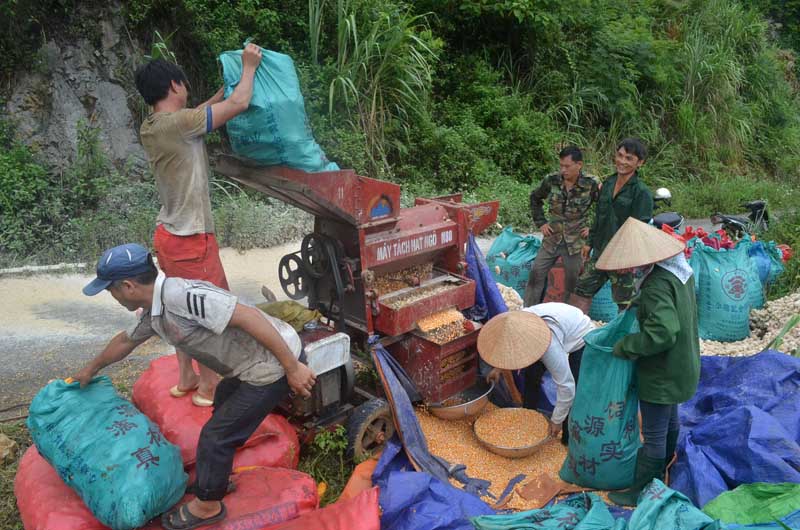



Becoming a key crop, maize has brought about
a significant change in the lives of Lanh village people in Cao Son commune (Da
Bac).
Since the transition to growing hybrid corn,
the life of Mr. Dinh Van Thong’s family (Na Chieu village) has gradually changed.
With an area of over 2 hectares, his family earns more than 100 million dongs
on average every year. Thanks to that, his family has stepped up to escape
poverty, creating a stable life.
At present, Lanh village has 70 households,
with the total area of 40 hectares growing maize. On average, each household
has 0, 5 hectare. Because of the suitable weather and favorable soil
conditions, maize productivity in the Lanh village ranges from 50 to 55
quintals / hectare; even some households achieved higher yield and productivity
thanks to good caring. Speaking with us, Mr. Ban Van Xuan, Vice Chairman of Cao
Son Commune People's Committee said that: Currently, the total land area for
planting annual crops of the commune is 1,518 hectares. In particular, the main
crops are rice, maize, cassava and arrowroots, etc. Especially, maize has been
identified as a major crop towards commodity production.
For the development of commodity-oriented
crops, in the past few years, Cao Son has brought into full play its advantages,
stepped up the application of advanced science and technology, introduced new
high-yielding varieties into cultivation, intensified intensive farming,
increase productivity and yield of the crop. As a result, every year, Cao Son
maintains the area of growing rice from 140 - 160 hectares, the output reaches
from 500 to 800 tons per year; the corn plantation area maintains the area of
800 - 850 hectares, the annual output ranges from 3,000 to 4,500 tons per year;
The plantation area of arrowroots is 300 - 350 hectares with intensive
cultivation, intercropped with maize, the yield harvested every year reaches
from 1,500 to 1,800 tons.
It can be said that from a poor commune, but
by knowing how to apply and exploit the potential of land, boldly transforming
the structure of plants and animals, Cao Son commune has become a land of
prosperity. According to statistics, the poverty rate in the commune is 36.87%,
the average income per capita is over 20 million dongs per year. The commune
has more than 70% of households having stable houses. The social infrastructure
of roads, electricity, schools, cultural houses, etc. continues to be invested
for completion.